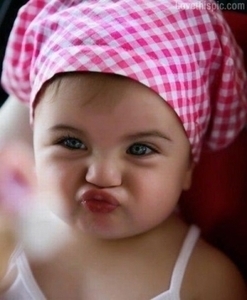20679891
1.1 - Planning investigations
Description
No tags specified
Slide Set by Jannat Abbas, updated more than 1 year ago
More
Less

|
Created by Jannat Abbas
almost 5 years ago
|
|
Resource summary
Slide 1
By Jannat Abbas
1.1 - Planning investigations
Slide 2
Scientists carry out investigations through research, like looking through books or surfing the net.
When you begin to wonder why or how something happens, you are beginning to think like a scientist.
Turning your ideas and thoughts into knowledge means going through a process called the Scientific Method!
.......................................................................................................................
Slide 3
The Scientific Method
This method is a practical way of asking and answering questions linked to science.
It uses observation and experiments to birth new discoveries, find out how the whole world works, and to build up knowledge.
In a nutshell, it basically uses a number of steps that help scientists follow a certain process that will help answer their questions.
Slide 4
Observations & questions
All scientific questions are based on an idea that needs to be answered, which is often based on an observation -- like noticing that ice melts quicker in a hot drink than a cold drink.
Observations are an important part of the scientific process, and it includes your senses as well as a wide variety of lab techniques that allow closer and more accurate answers.
They allow scientists to record and collect data easily, which leads to testing the hypothesis.
Slide 5
Developing a question
One way to answer a question is to undergo an experiment. The idea is to:
- choose a question YOU find interesting
- start with a topic that you are familiar with
- make sure your lab at school has the resources needed for your experiment
- finally choose a topic that would provide clear data that can be measured.
The question should be 1 sentence that describes the aim of the experiment, and a hypothesis must also be tested.
Caption: : The question, aim, and hypothesis are all interlinked. It’s important to know that each of these can be refined as you make your way through.
Slide 6
A variable is a factor that may vary and affect the result of an experiment.
A good experiment has carefully controlled variables, testing only 1 variable at a time -- known as a fair test.
Forming a hypothesis
A hypothesis is an educated guess as to what would happen in an experiment. In your hypothesis, you'll need to include both the dependent and independent variables.
It should also be worded in this order:
If THIS happens, then THAT will happen.
Variables
Slide 7
The hypothesis
To be a fair test, your experiment should test only 1 hypothesis at a time.
Another way to write a hypothesis is to use an inference: a logical idea that comes from an observation.
E.g. observing that grass growing on the sides of the road remains green throughout all seasons.
All the hypotheses from the inferences you make can be tested -- either by more observations or taking measurements in many experiments, to find out which hypothesis fits right.
Slide 8
Thanks for listening :)
Want to create your own Slides for free with GoConqr? Learn more.
